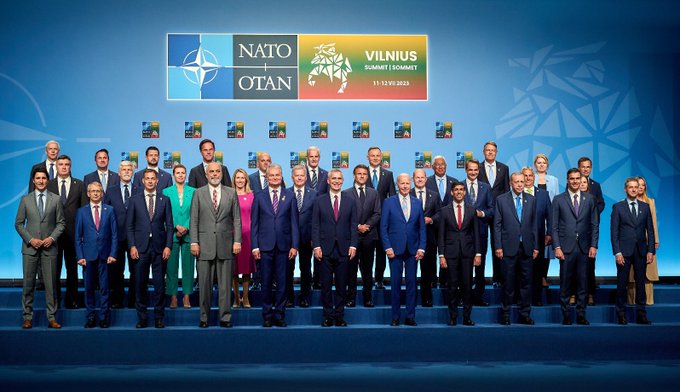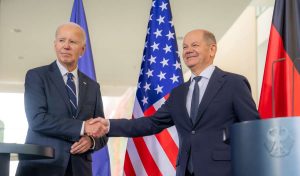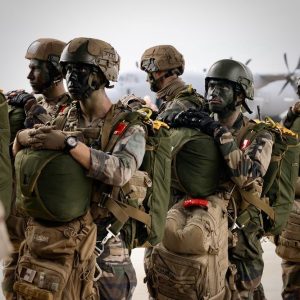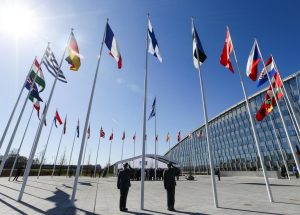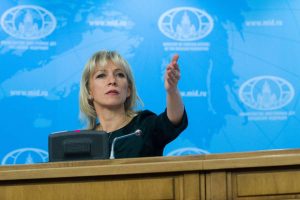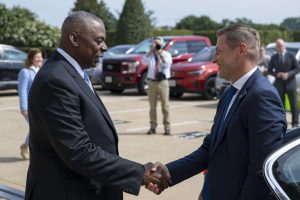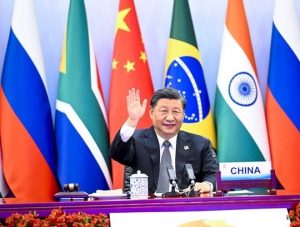NATO leaders also pledged to provide more long-term support to Ukraine and held the inaugural meeting of the new NATO-Ukraine Council…reports Asian Lite News
The NATO summit wrapped up here in the Lithuanian capital amid divisions among members and opposition from the international community.
During the summit concluding on Wednesday, NATO adopted its “most comprehensive defence plans since the end of the Cold War” and endorsed a new defence production action plan.
Under the new plans, NATO aims to have 300,000 troops fully ready for action, Xinhua news agency reported.
NATO allies have also made an “enduring commitment” to invest at least two per cent of their GDP annually in defence, according to a statement published at the summit.
Only 11 of the alliance’s 31 members have reached or exceeded this target after “nine consecutive years of increased defence spending” since 2014, documents released at the summit showed.
NATO leaders also pledged to provide more long-term support to Ukraine and held the inaugural meeting of the new NATO-Ukraine Council with Ukrainian President Volodymyr Zelensky. However, they failed to set a timetable for Ukraine’s membership in the alliance, which Zelensky has called “unprecedented and absurd”.
NATO members have been divided on how to bring Ukraine closer to their bloc. While some Eastern European members are pressing for an explicit commitment on when Ukraine will join, the US and Germany are reluctant to clarify, according to some reports.
A regional alliance between Europe and North America, NATO again invited leaders of Australia, Japan, New Zealand and South Korea, the so-called partners in the Asia-Pacific region, to attend its summit for the second time and vowed to “further strengthen dialogue and cooperation to tackle our shared security challenges,” according to the statement.
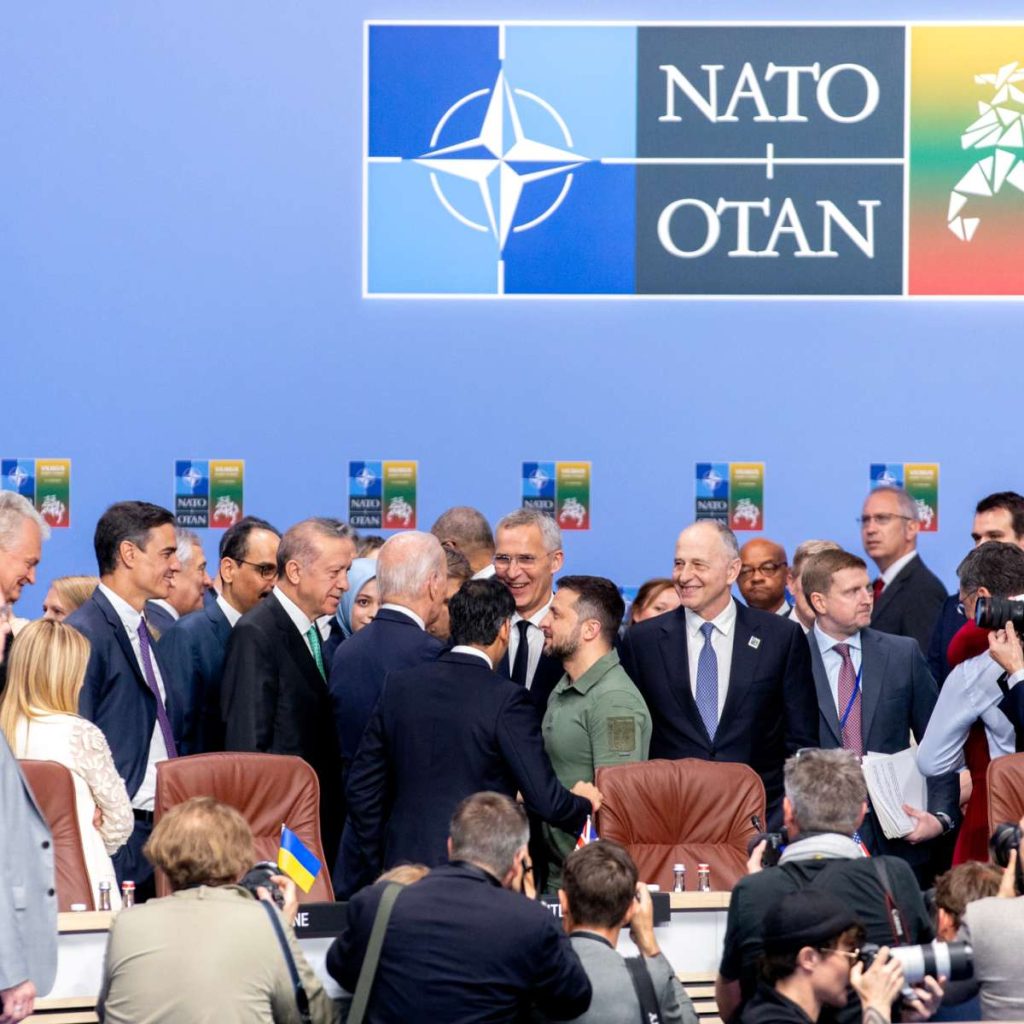
In the statement, the military bloc mentioned China 15 times, saying that “China’s stated ambitions and coercive policies challenge our interests, security and values” and that China posed “systemic challenges” to the alliance.
In response, China on Wednesday rejected such claims.
“What’s said in the NATO statement is a complete opposite of the truth and the product of Cold War mentality and ideological bias. China strongly opposes it,” Chinese Foreign Ministry Spokesperson Wang Wenbin told a daily press briefing.
“We urge NATO to stop making groundless accusations and provocative rhetoric targeting China, quit the outdated Cold War mentality, ditch the wrongdoing of seeking absolute security. We have seen what NATO has done to Europe, and NATO must not seek to sow chaos here in the Asia-Pacific or elsewhere in the world,” he added.
Leading up to the two-day summit, protests against NATO were held in several European countries, including major countries like Britain and France.
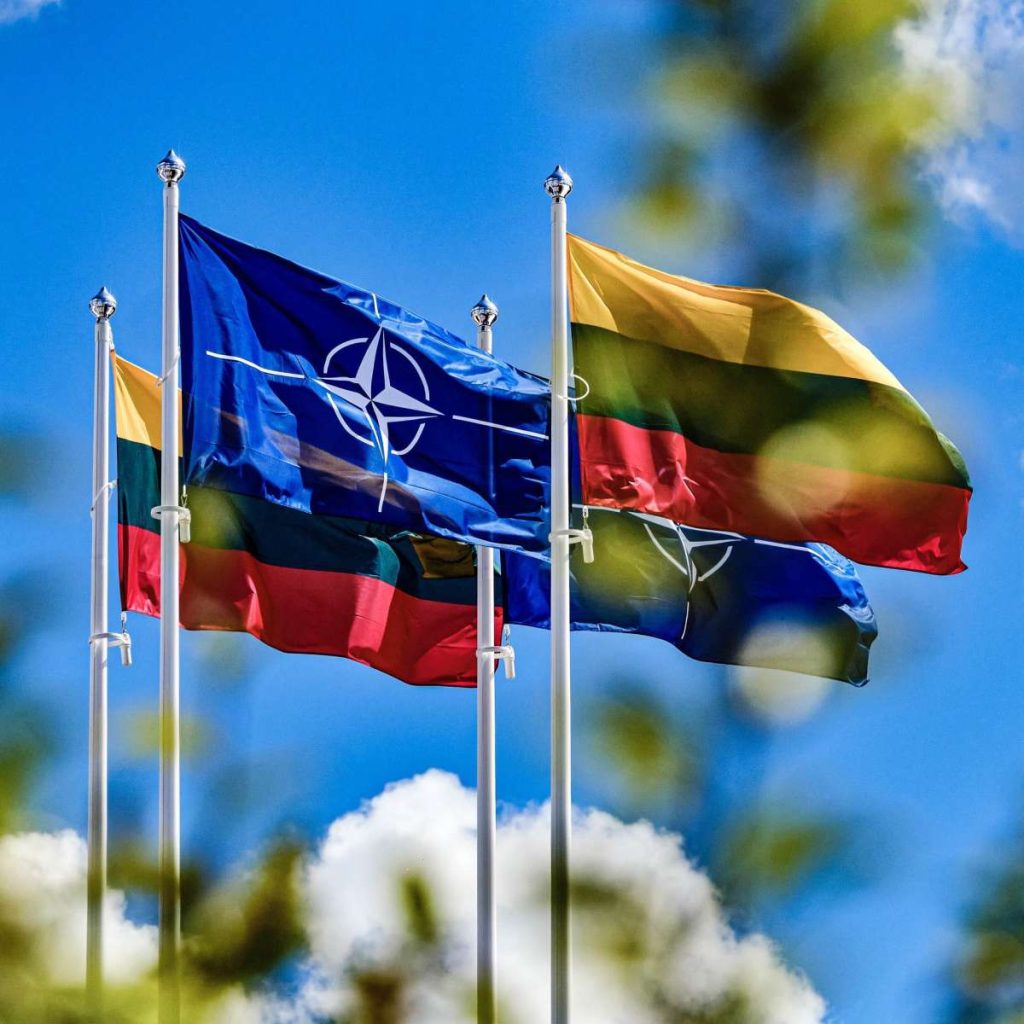
Russia warns of response
Russia has said the latest NATO summit demonstrates that the Western military alliance has returned to “Cold War schemes”, and Moscow is ready to respond to such threats by “all means” necessary.
Russia’s comments came as United States President Joe Biden said at the end of the NATO summit on Wednesday that Russian President Vladimir Putin had a “craven lust for land and power” and had badly misjudged the resolve of the military bloc to support Ukraine.
Ukraine, he was betting NATO would break apart … But he thought wrong,” Biden said at the end of the two-day summit in Lithuania’s capital Vilnius.
“NATO is stronger, more energised and yes, more united than ever in its history. Indeed, more vital to our shared future,” he said.
The Russian foreign ministry said in a statement late on Wednesday that the outcome of the NATO meeting would be “carefully analysed” for the threats posed to Russia’s security.
“Taking into account the challenges and threats to Russia’s security and interests that have been identified, we will respond in a timely and appropriate manner, using all means and methods at our disposal,” the ministry said in the statement.
Western powers were determined to divide “the world into democracies and autocracies”, the ministry said, adding that “the crosshairs of this policy of searching for enemies is aimed at Russia”.
The ministry also said that NATO was continually lowering the threshold for the use of force while escalating political and military tensions by supplying Ukraine with more powerful and sophisticated weaponry.
“Taking the course of escalation, they issued a new batch of promises to supply the Kyiv regime with more and more modern and long-range weapons in order to prolong the conflict as long as possible – to exhaustion,” the ministry said.
Russia would respond by strengthening “the country’s military organisation and defence system”.
The NATO summit, which opened with news that Turkey would approve Sweden’s membership of the military alliance after months of objections, ended on Wednesday with the US and its allies giving Ukraine new security assurances for its defence against Russia.
Ukrainian President Volodymyr Zelenskyy, who attended the summit, was offered long-term security promises, but he was not given a concrete timeline for NATO membership, which he had lobbied for strenuously.
NATO’s courting of Ukraine will likely further anger Putin who has partly portrayed his invasion of Ukraine as a response to NATO’s eastward expansion and to prevent the possibility of Ukraine joining the Western military alliance and the stationing of NATO forces at Russia’s borders.
Washington, DC-based think tank the Institute for the Study of War (ISW) said on Wednesday the NATO summit “demonstrated the degree to which the 2022 Russian invasion has set back the goals for which the Kremlin claims it launched the war” on Ukraine.
